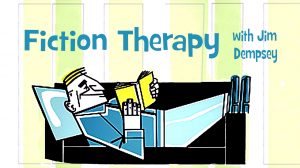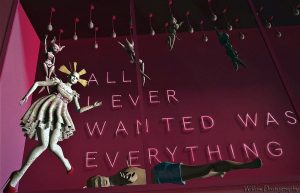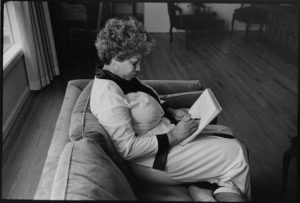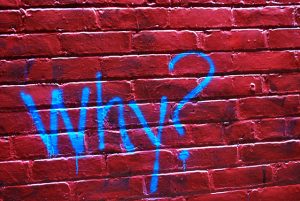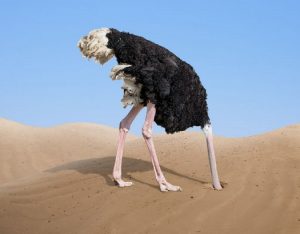Author in Progress
People often ask me what I’m reading and sometimes I forget. What’s the name of that book again? But then some book titles stick to my brain like a gecko clinging to a wall. They take root inside me and often the book itself proves to be just as unforgettable.
In brainstorming the title for my own debut novel, I turned to experts who advised that authors should keep titles short for a variety of reasons: Something short will be easier for people to remember. Fewer words will fit more neatly on the book jacket and not require a small, unreadable font. But like most advice, it depends.
My favorite title these days consists of eight words. You read that right. Eight. Yet it sounds cool as hell when I say it aloud: Hitting a Straight Lick with a Crooked Stick. Zora Neale Hurston’s story collection centers on love and migration. The rhythm and flow of that title hits my ear just right. Genevieve West, who wrote the book’s introduction, says there are many ways to understand the title, one being that it refers to the ability of black people to endure and overcome challenges, or as the old folks say “make a way out of no-way.”
Then there are the one-word wonders that pack a world of meaning in an astonishing economy of letters. I devoured Heavy, the memoir by Kiese Laymon. In one small word, he interrogates so many aspects of a heavy life: blackness, body weight, secrets and lies, America’s sins, and the many ways we hurt others and ourselves. In her runaway bestseller Becoming, Michelle Obama uses the title of her memoir to explore how our personal growth has no finite destination; instead, we’re always learning and evolving. The title sparked a mini-movement, too. Using the hashtag #IamBecoming, readers took to Twitter to share their personal journeys of becoming.
The scope and breadth of a book title can intimidate us as the authors of the work. How expansive can it be? Am I being audacious in my choice of a title? When I studied novel writing with Tayari Jones at Tin House, she discussed the difficulty she had in choosing the title of her latest novel. In an offhand remark to her editor, she suggested An American Marriage but quickly dismissed the idea because it sounded like a book about navel-gazing white people in Connecticut, not a novel about a black couple grappling with the fallout of wrongful incarceration. It was her mentor, Pearl Cleage, who reminded her that black people are indeed American and that the prison system responsible for upending her protagonist’s life is a uniquely American institution.
Some of the best book titles turn popular sayings on their head and imbue them with new, unexpected meaning.
Read MoreThere’s a popular quote floating around on the interwebs, stating that “comparison is the thief of joy.” I’ve never found a rock-solid origin for that quote, although it is most frequently attributed to Theodore Roosevelt. Frankly, I think it sounds a little too touchy-feely to have come from the uber-manly 26th US president, who likely would have said something more along the lines of “Comparison is the enemy, and I have whipped its sorry butt with a really big stick.”
Regardless of its source, the quote has become a bit of a mantra for those of us in the arts. Conventional wisdom is that comparing ourselves to others – particularly our levels of success (or lack thereof) – is inherently a bad thing.
That way madness lies, we are admonished (while we’re sourcing quotes, that one is from Shakespeare’s oh-so-cheerful King Lear). It’s not a competition, and there’s room for all of us, we are advised, so we should just focus on our own stuff, rather than comparing ourselves to people who are probably in completely different situations than we are. Seems like sensible advice.
Sooooo, how are YOU doing with the whole not-comparing-yourself-to-others thing?
Me? Not so good.
Seems like recently I keep seeing people who do what I do, but who are doing it more successfully, and I find myself thinking: I just don’t get it. Why are these people so successful? Is what they’re doing really considered good these days?
This in turn leads me to question whether my own sense of what is (and isn’t) good has fallen out of step with the times. Or maybe it was never in step to begin with.
I mean, what if I’m completely wrong about what constitutes good art? What if I’ve been fooling myself all these years?
From there, the spiral accelerates and I soon find myself diving headfirst into the dreaded Cronin Crisis of Confidence®. Fun stuff. Right up there with a long, luxurious root canal.
Let’s look at a few examples…
Case #1: The not-so-good writing colleague
About a decade ago I became casually acquainted with a writer who was working on her first manuscript. As we were both members of a writing group, I got a chance to look at her work-in-progress.
It was not good. Seriously not good.
But it was a very different genre than I write, and she never directly asked me for my feedback, so I wisely kept my opinion to myself.
Over the years we’ve lost touch, but I still encounter her online from time to time, and I have to give her props for diligence: She kept pounding away, producing numerous manuscripts, and eventually succeeding in selling a novel. I checked out a sample online, to see if her writing had improved. The verdict?
Read MoreWhen people ask what I do and I say I’m a novel editor, they tell me they’d love to write a book some day, once the kids are grown up, when they have more time, or if only they were good enough.
Some people have already given up trying. They say, ‘I suppose if I really wanted to write I’d have done it by now.’
But that’s just another excuse. That argument assumes we all fall naturally into what we want to do, when in fact it’s much more natural to find an excuse not to do it.
We all makes excuses. It’s a part of what we do. And the first step to making a commitment to finally writing that book is to recognize the excuses and to stop them getting in the way of your dreams.
Read More“Okay, I’m a little, teeny bit jealous of a few writers,” I admitted to another debut author via the anonymity of Facebook Messenger.
“I am SOOOO jealous,” she typed back.
Behind the confessional curtain of social media, we could whisper that ugly truth. We even conceded we’d been jealous of each other from time to time. Once I began opening up to more of my writer friends, many revealed mild annoyances, burning secret resentments, and even crippling envy. Still, everyone stressed they were extremely happy, thrilled, and overjoyed (substitute other convincing superlatives) for the success of other authors.
One of the most insidious sources of this madness has to be the list, which is lauded as the holy grail of success by enough writers for it to be stressful. Well, all the lists. This time of year, almost every publication from O, The Oprah Magazine to The New York Times and PopSugar releases its list of the most anticipated books for the new year. The timing couldn’t be worse because those lists come on the heels of year-end wraps of the best books from the previous year. Every time a new list emerges, a collective, congratulatory whoop rises in my author communities and I believe it’s genuine. Still, amid all the fanfare, I know authors scan those lists, starry-eyed, looking for their own names.
Lists are not an immediate consideration for me right now. I’m in the early stages of the publication process completing a second round of structural edits for my novel, which doesn’t release until early 2021. But anticipatory angst is real, if a bit irrational, and I sometimes envy authors who make lists I’m not even eligible for, wondering if my own trajectory will be on par with theirs.
One winter afternoon I spent hours poring over a website called Edelweiss (totally unrelated to The Sound of Music), where you can request advance reader copies of books and browse publishers’ catalogs. It’s still early so my book doesn’t appear in the database yet. Still, Edelweiss offers a preview of what’s happening for other authors. I try to manage my expectations.
Be cool. Just be cool.
Still, I couldn’t help but notice the publicity and marketing plans for the most buzzed about authors, which include branded influencer packages, national author tours, New York media lunches, and pre-pub cocktail parties. Some authors whose publishers are committing few if any resources to boost their books often look at those plans with envy. For me, there’s this bubble of hope, cautious optimism coursing through my veins, as I imagine all that hoopla for my novel someday.
Read MorePhoto by Sarah R. Photography
I recently shared a post on Twitter about a friend who won a writing contest. I was excited for him. Sharing his news seemed like an obvious move. Author Cai Emmons responded to my post with a simple comment: “You are a great literary citizen.” I got a bit choked up when I read her comment, which seemed silly, even to me.
Why did her response matter so much to me?
I thought about Cai’s comment a lot over the next few days. It mattered because I cannot control what people think of my writing. I cannot control how well my books sell or how many people will show up to a reading. I can, however, control how I participate in the literary community, and I very much want to be a good literary citizen.
But what does it mean to be a good literary citizen? I think about authors like Celeste Ng or Roxane Gay, who stand out as forces for good in the literary world. They take stands on important issues and support other writers. I’m certainly no Roxane Gay or Celeste Ng; I don’t have a huge platform with throngs of fans. But that doesn’t mean I can’t have a positive impact, or at least try to.
I think the keys to being a good literary citizen are authenticity, passion, and kindness. Don’t praise someone because you want to get something from them. But be honest with yourself. Admit that boosting others also gives you a boost. If you show up for other writers, they are more likely to show up for you one day. I’m not suggesting you promote another writer so that same writer will support you in return. There is no quid pro quo. (Sorry I couldn’t resist.)
Being a good literary citizen is more like tossing goodwill out into the Universe like a fistful of glitter. You don’t know where it will land, but you can be pretty sure it will stick to something.
The list below started as goals I set for myself. I don’t claim to be an expert, and I have plenty of room to improve. So I will consider this a list of standards that I hope I can live up to one day. No one can do everything. Don’t beat yourself up for the things you can’t do. Focus on the ways you can impact the writing community, no matter where you are in your journey.
Read More
In 2010, when I first dipped my toe into the publishing world, the biggest mystery to me was—besides figuring out the difference between a query and a synopsis—this thing called a “platform.”
At the time, I was writing about killer mermaids. I didn’t know how I was going to go about becoming enough of an expert on the subject that a potential editor would take me seriously. Imagine my utter relief when I learned that it was only the non-fiction writers who required a platform. All we fiction writers had to prove was that we had an imagination, a way with words, and that we understood the shape of a story.
That blissful world is no more.
These days, even debut fiction writers are being asked by would-be editors about their platforms. What they’re really asking is:
Read MoreI get this question all the time as if my book were a souffle or cake in the oven. The timer has been set. Someone else has determined the appropriate temperature and time for baking. Trust me though. Just like your baked goods, your book will fall if you take it out too early.
Cooking requires patience and so does novel writing. I like to think of my book as a dish that needs to marinate, soaking in its own juices long enough to absorb everything and maximize its flavor.
Beginning writers sometimes ask how they’ll know when their book is done. My response to novices is that your novel is rarely ready when you think it is. How can it be when you’re still learning the basics of craft and discovering your story?
In an industry where it takes forever for things to happen, we must subdue the urge to rush. I queried literary agents two years ago when I thought my novel was ready. It wasn’t and I received many rejection letters to punctuate that fact. It’s tough to take your time though when others’ expectations buzz in your ears. Or when you’re surreptitiously eyeing someone else’s paper. I get it. Our writing contemporaries seem to be leapfrogging over us by writing two books simultaneously, securing agents and book deals overnight, and publishing new work while we hunch over our laptops and notebooks, toiling in the trenches.
A year ago, when I placed in a writing contest based upon an excerpt of my novel, a former work colleague grossly misunderstood the meaning of this honor. On Facebook she inquired as to whether my novel would be available for her upcoming book club meeting in two months. I laughed. I almost cried. I felt like a failure or at best a fraud for having to say no, I’m still working on the book. She wasn’t the first to inquire. People often look at me in amazement or perhaps pity, shaking their heads, saying, wow, you’ve been writing that book for a long time.
My critique partner and beta readers often lament that I’m a perfectionist, laboring (read: obsessing) over every scene and every word much too long. Maybe they’re right. There is a point at which we must let go and let our books fly. But before then, there’s revision and revision and more revision.
Daily living is part of the revision process. Sometimes we haven’t experienced enough to bring the right emotions to the page. It wasn’t until I’d lived years without my beloved father on this Earth with me that I understood the impact of grief and how it shapes my perception of the world. It wasn’t until my father died that I began to inspect my mother’s face and movements so closely, memorizing them so I wouldn’t forget any details. I explored loss and memory in my novel, The Kindest Lie, through Midnight, an 11-year-old boy whose mother died, as well as through Ruth, my protagonist, who lost her grandfather when she was a young girl.
While the novel is always your story and yours alone, revision shouldn’t be a solitary exercise.
Read MoreWe all remember where we were when the collective community celebrated or mourned something momentous. Last week, I was sitting in a classroom at Howard University during a Hurston-Wright workshop for Black writers led by bestselling author Nicole Dennis-Benn. As I read aloud the words I’d just composed for a writing prompt, one of my classmates gasped. Then there was a knock at the door. We’d lost our literary light, Toni Morrison.
During my sophomore year at Northwestern University, Professor Leon Forrest assigned Beloved and Song of Solomon as required reading for our literature class. I struggled with language too dense and ideas too complex for my immature imagination to hold. Sadly, I admit I didn’t pick up Morrison’s work again until years later when I’d done enough living to understand how she’d held a mirror up to my own interior life. She gave me permission to write boldly and unapologetically about blackness while centering no one’s gaze but my own.
As writers, we learn craft best by reading works from authors we admire. I studied Morrison’s debut novel, The Bluest Eye, and re-read it many times while writing my own debut. In simple terms, it’s the story of a dark-skinned Black girl’s desire to have blue eyes, but on closer examination, it’s about the roots of racial self-loathing. This book, like all of Morrison’s works, is a master class in storytelling.
Opening Lines
Quiet as it’s kept there were no marigolds in the fall of 1941. We thought, at the time, that it was because Pecola was having her father’s baby that the marigolds did not grow.
That’s how Morrison begins The Bluest Eye. Right away, we want to know why some plants or people flourish while others don’t. The author doesn’t withhold information or try to be coy and mysterious. In the first paragraph, we learn that the protagonist has been the victim of pedophilia. That’s the big plot point and she gives it to us in the first two sentences, yet we still want to read on for hundreds of pages. Also, on page one, the narrator dares to explain why this story structure is brilliant:
There is really nothing more to say—except why. But since why is difficult to handle, one must take refuge in how.
In that opening, Morrison intrigues us, establishes an emotional connection, and assures us we’re in capable hands as she takes us on the journey of Pecola’s story.
Characterization
The most memorable characters stay with us long after we’ve finished the novel because they’re complex and multi-dimensional. We may not like them because they’re unlikeable, but when they’re well-drawn, we understand them and empathize. Let’s look at Cholly Breedlove, the abusive, cowardly antagonist who beats his wife and impregnates his daughter.
First, the surname Morrison chose for this character begs attention. It wasn’t until I finished the novel that I realized that Cholly couldn’t “breed love” because he’d rarely experienced receiving love. Presenting Cholly Breedlove as merely a hateful predator would have been too easy and simplistic. We’re all more than the evil we inflict.
Morrison expertly wove in backstory where we learn that Cholly was abandoned by his mother and rejected by his father. When Cholly was just a boy getting to know a girl he liked, still fumbling and awkward […]
Read MoreHere’s your homework…
Next time you’re at your local gift shop or office supply store, pick up a little notebook (and a super awesome pen).
Begin paying very close attention to your physical and emotional reactions during your workday or any time you’re doing something for your career.
Rethink the phrase, “Go big or go home.”
Reflect on the phrase, “Success is a series of small victories.”
Now, jot down daily or weekly (all work-related):
So why should we do this?
Because there is no need to risk everything.
Because you can build slowly, intentionally.
Because what sparks, excites, and invigorates you matters, a lot.
Because being on top is terrific but knowing who you are and what you have is something.
Read MoreDo you remember that news clip of US figure skater Nancy Kerrigan’s long, drawn-out “Whyyyyy? Whyyyyy? Whyyyyy?” after a hired assailant bashed her across the knee right before the US Figure Skating Championship that would determine the 1994 Olympic team?
Media outlets played the wailing clip over and over and over. Before the Olympics, during the Olympics, and after the Olympics. Like Nancy, we all wanted to know why, why, why would someone attack her like that?
Facts started emerging. The who, what, where, and when came to light within days. The ex-husband of rival skater Tonya Harding had hired two men to injure Nancy. We knew what happened. But don’t all athletes want to win? What made this particular rivalry so intense it resulted in violence?
We needed to know why, why, why.
I’m thinking about this ice skating drama right now as I work on my second novel manuscript. I’m trying to understand why my characters are doing what they are doing—not just the obvious answer to why, but the deeper, less apparent (often complicated) reasons.
In search of answers, I signed up for an online class run by the Rocky Mountain Fiction Writers about conflict. I wanted to dig into the sources (and potential sources) of conflict I wasn’t utilizing. The instructor Sharon Mignerey posted a lesson that challenged us to think of a scene in our novel and ask why the character did what they did. She asked us to write out the answer, then ask why of that answer. Write out that second answer and dig a layer deeper. Why, why, why?
The why is what keeps us interested. The more why’s we can answer, the closer we get to the heart of the conflict.
I’ll give you an example of how this exercise works. When I was little, the story of Goldilocks and the Three Bears always bothered me. I couldn’t get past the idea that this child just walked right into the bears’ home without permission. Why? Bear with me as I take a few liberties with the story and see if we can dig deeper into Goldilocks’ possible motivations.
Let’s consider a moment of conflict in the story:
Why is Goldilocks scared when the Three Bears wake her from her nap?
Because they are screaming at her.
Why?
Because she entered their home without permission, broke their furniture, and ate their food.
Why?
No one was home, and the door was unlocked, so she walked in.
Why?
Goldilocks assumes that everything is there for her to enjoy and consume.
Why?
Because she has been raised with a lot of white privilege and always gotten everything she has ever wanted without having to work for it.
Why?
Because her over-protective parents have dedicated their lives to making sure their little Goldilocks has a perfect, worry-free life.
Why?
Because they grew up poor and didn’t want their baby girl to have to struggle the way they did.
Why?
Because they don’t recognize that much of what they’ve accomplished in life was the result of trying, failing, and learning from their mistakes, and that by robbing their precious daughter of the same learning opportunities, they have doomed her to become an unrepentant, […]
I’ve been a little stressed at work lately because there’s a big project due. There’s no firm deadline, but it’s clearly my top priority to finish it, and there’s a lot riding on its successful completion. Yet every day I end up working on secondary tasks, not the big project. They’re easier. And it’s rewarding to cross several concrete items off the to-do list not just inch a millimeter down an enormous task list for a single project. The lower priority projects also have less at stake. The pressure to get the big project right puts a lot of weight on every step of the work.
I feel guilty about avoiding what I should be doing, but not guilty enough to get myself to work on the big project. Compounding the matter–my boss is letting me get away with it. Week after week, the big project is not done, but I settle in with the little stuff. Nothing is said. No pep talks. No earned reprimands. No redirects. No refocusing of my priorities. So this failure is partly a management problem—my boss is a pushover.
I’m betting most of you have guessed the trick–I’m a writer. I am my own boss. And my only staff person. And I am letting myself get away with murder on the job. I know this because I have very different work habits at my day job than I have at my own writing desk.
On the day job, I am efficient, focusing on the highest priority tasks first, even if they are not the most fun. Even if they are tedious. Or difficult. Even if I’m stuck on how to get them done.
At my writing desk, however, I am the queen of spontaneous googling; keeping the inbox empty; tidying unnecessarily; finding more research to do; or exploring ideas for the next project (once this big one is finished). This lackadaisical approach to work is sabotaging my writing career before it even gets started. I need to figure out how to motivate myself; how to stay on task; how to focus. How to stop doing the easiest, most comfortable, or most straightforward tasks first.
As they say, awareness is the first step towards change. What, exactly, needs to change, however is not clear. The problem isn’t ‘me’ per se, or my skills—I can be effective–the day job proves that. What I lack is self-management—how to get myself to do what needs to be done on my own work. I have to become a better self-boss.
Read MoreWe often live in different communities and socialize in separate circles, and yet when it’s time to write our novels, a few daring souls attempt to cross the racial divide. As a Black writer, I must say it’s sometimes awkward at best.
The publishing industry has been vocal in recent years about wanting diverse books that reflect the world we live in. This has sparked a lot of discussion in writing communities, including this one. I’m often curious: Do these writers want to include Black characters because it will make them more marketable or do they see this as a moral act, a way to do the right thing? Is this really the story they want to tell?
Several white writers have asked me to review excerpts of their novels that feature Black characters. They approach me well-intentioned but also apprehensive about getting it right. They fear doing something stupid (read: racist) on the page and that’s a valid concern. Mistakes have been made in literature, television, and film. (Note that this was an intentional use of passive voice to avoid outing the guilty.)
When I review the work of white writers, I often find common missteps regarding Black characters. The prevailing wisdom for anyone writing characters outside of their own experience is to research and do your homework. While due diligence is always important, there are other basics that often get missed.
Slang and broken English should not be the dialogue default for Black characters.
I’ve read too many novel manuscripts in which Black characters are speaking Ebonics and using poor grammar. I cringe because it’s often offensive caricature. Black people are not a monolith and our language patterns are as diverse as we are.
When you try to emulate language that’s embedded in a culture you don’t know or understand, it’s tricky to pull that off in a way that isn’t seen as demeaning and derogatory. Now, just to confuse everyone, I want to share an example from the award-winning memoir Heavy, by Kiese Laymon, a Black author and English professor at the University of Mississippi who breaks those rules, because he can. In this passage, he describes bantering with his eighth-grade classmate in Catholic school:
La Thon cut up his pink grapefruit with his greasy, dull butter knife. “These white folk know we here on discount,” he told me, “but they don’t even know.”
“You right,” I told him. “These white folk don’t even know that you an ol’ grapefruit-by-the-pound-eating-ass n****. Give me some grapefruit. Don’t be parsimonious with it, either.”
In that passage, Laymon and his friend are intentionally practicing their vocabulary words (parsimonious) in a way that’s relevant and connected for them culturally. If you’re not Black and that’s not your experience, don’t try that on the page.
The primary purpose for Black characters should not be to support white protagonists.
We often see Black characters in novels playing the role of the sassy sidekick or best friend. As marginalized people, we consider ourselves “the mainstream” and want to be centered in stories. We shouldn’t be relegated to holding the white protagonist’s hand and shepherding her through her crisis.
You may have heard of the Magical Negro trope in which the wise, sometimes other-worldly Black person enters the white character’s life just at the […]
Read MoreJust 19 spots remain for the Writer Unboxed UnConference, an event that has proven itself to be quite different from the traditional writing conference, with a focus on craft (not business), on building strength as a writer, and on forging authentic connections within the writing community.
Some of our sessions are held at the visitor’s center for the historic House of the Seven Gables, with esteemed session leaders and WU friends: Brunonia Barry, Anne Greenwood Brown, David Corbett, Kathryn Craft, Keith Cronin, Margaret Dilloway, Donald Maass, Greer Macallister, Barbara O’Neal, Ray Rhamey, Therese Walsh, Heather Webb & Cathy Yardley.
And there will always be a space to write.
We’re different. And we’d love to show you why.
Learn more and sign up HERE.
Read MorePlease help me perform an experiment. Re-read the title of this post, and ask yourself: What if somebody said those five words – “I don’t believe in diabetes” – to you? What if they followed it up with something like this? “People should just eat less sugar.”
I suspect you might consider that remark insensitive, or stupid, or uninformed, or simply wrong. I also suspect that none of you would ever actually say something like that – particularly to a person diagnosed as being diabetic. After all, it would definitely be insensitive, it would almost certainly be stupid, and it’s clearly ill-informed and wrong, as there is ample medical proof that A) diabetes exists, and B) sugar consumption does not directly cause diabetes.
Let’s try a variation. Consider this statement:
“I don’t believe in depression. People should just cheer up.”
Again, this is something I doubt most people who read posts like this would say, and for the same reasons. At the very least it would be insensitive, and the oversimplified solution it offers is both callous and unhelpful. However, the grim reality is that there ARE some people who would say this – or at least think it. Ask anybody who suffers from depression, and I bet they’ll corroborate this.
Let’s re-cast this sentence one more time, transforming it into something that a fair number of you probably would say:
“I don’t believe in writer’s block.”
I know – this is false equivalence, comparing writer’s block to actual illnesses like diabetes or depression. I’ll address that in a moment. But first let’s explore this premise a bit more. Whether you believe in writer’s block or not, I think you’d have to admit it’s a pretty common punching bag – or punchline – for many writers. Here’s a quick sampling.
Let’s start with Jodi Picoult, who proclaims, “I don’t believe in writer’s block. Most of writer’s block is having too much time on your hands.”
Terry Pratchett apparently has Jodi’s back on this. He’s been quoted as saying, “There’s no such thing as writer’s block. That was invented by people in California who couldn’t write.”
Writing teacher and author Natalie Goldberg says, “I don’t believe in writer’s block. I don’t even think it exists.”
Author Bob Welch calls it “an excuse,” and elaborates that “I don’t believe in writer’s block any more than I believe in ‘plumber’s block’ should the guy fixing my pipes suddenly find the going difficult.”
Continuing with that theme, author Roger Simon, currently the chief political columnist of Politico, drives the stake a little deeper: “Why should I get writer’s block? My father never got truck driver’s block.”
These are all clever, pithy remarks – brimming with confidence and making it pretty clear that writer’s block is just not something that happens to REAL writers.
Um, except for when it does.
Read More


